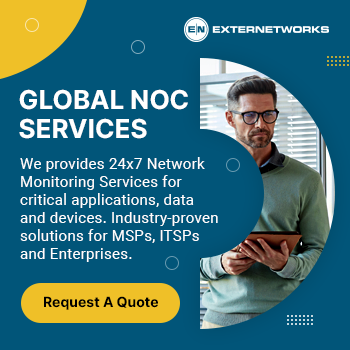How Managed IT Services Can Help Improve Security and Compliance

We live in a world where data breaches, malware attacks, and other types of cybercrime are becoming more common. The amount of regulation governing how businesses must protect their data only continues to expand. It can be overwhelming for any organization to keep up with all these requirements while finding the resources needed to ensure adequate cybersecurity.
Are you concerned about cyber security and compliance issues? Many businesses struggle to stay ahead of the latest threats and regulations, particularly if they don’t have an in-house IT team. Fortunately, there is an effective solution: Managed IT Services.
What are Managed IT services?
Managed IT services are a type of outsourced IT service that allows businesses to outsource their IT operations and maintenance to an external provider. This service is typically provided on a subscription basis, allowing companies to pay for only the services they need. Managed IT services can help improve security and compliance by providing organizations with access to experienced professionals who specialize in managing and securing networks, systems, and data.
This article will explore how managed IT services can help organizations keep their data safe and comply with industry regulations.
Cybersecurity Services
Protection against malware, ransomware, and other cyberattacks
Managed IT services can help improve security and compliance by protecting against malware, ransomware, and other cyberattacks. This includes monitoring for malicious activity on the network, scanning for vulnerabilities, and deploying countermeasures to protect against threats. Additionally, managed IT services can provide regular security assessments and penetration testing to identify any weaknesses in the system that attackers could exploit.
Firewall and intrusion detection/prevention
Managed IT services can help improve security and compliance by providing a comprehensive suite of cybersecurity services. These services include firewall and intrusion detection/prevention, malware protection, data encryption, patch management, vulnerability scanning, and more. Firewall and intrusion detection/prevention is essential for protecting your network from malicious attacks. Firewalls act as a barrier between your internal network and the outside world, while intrusion detection/prevention systems monitor for suspicious activity and alert you when it is detected.
Regular security assessments and penetration testing
These tests are designed to identify any weaknesses in your system that malicious actors could exploit. By regularly assessing your system, you can ensure that any vulnerabilities are identified and addressed quickly before they can be used to gain access to sensitive data or disrupt operations.
Employee education and training on cybersecurity best practices
This includes teaching employees how to recognize phishing emails, use strong passwords, and spot suspicious activity on the network. Additionally, managed IT services can provide regular security awareness training to ensure that employees stay up-to-date with the latest threats and best practices.
Compliance with Industry Regulations
Meeting compliance requirements such as HIPAA, PCI-DSS, and others
Managed IT services can help improve security and compliance by providing a comprehensive approach to meeting industry regulations. By leveraging the expertise of an experienced managed service provider, organizations can ensure that their systems are up-to-date with the latest security protocols and standards. This helps to protect sensitive data from unauthorized access and ensures that all regulatory requirements are met.
Providing resources and expertise to ensure compliance
Managed IT service providers can help organizations identify potential risks and develop mitigation strategies by providing resources and expertise. They can also guide how to implement the best security measures that meet the requirements of the applicable regulations. Additionally, they can monitor systems for compliance and alert organizations when changes need to be made to remain compliant.
Regular compliance assessments and reporting
Managed IT services can help improve security and compliance by providing regular compliance assessments and reporting. This helps organizations stay updated with industry regulations, such as the Health Insurance Portability and Accountability Act (HIPAA) or Payment Card Industry Data Security Standard (PCI DSS). By having an experienced managed service provider review your systems, you can ensure that your data is secure and compliant with the latest regulations.
Data Backup and Disaster Recovery
Regular backups of critical data
Regular backups of critical data are essential for any business to ensure that their data is safe and secure. Backing up data regularly helps protect against accidental deletion, hardware failure, or malicious attacks. It also ensures that the most recent version of the data is available in case of a disaster.
Managed IT services can help ensure that critical data is regularly backed up. This helps to protect against data loss due to hardware failure, malicious attacks, or other disasters. Helps to reduce downtime and minimize the impact of any disruption on the business.
Off-site storage of backup copies
Off-site storage involves storing copies of your data in an external location, such as a cloud storage provider or another physical location. This ensures that if your primary data center is affected by a disaster, you still have access to your data. Additionally, off-site storage can provide an additional layer of security against malicious attacks, as the data is stored in a secure environment away from the main system.
Off-site storage also offers other benefits, such as increased flexibility and scalability. You can easily add or remove data from the off-site storage as needed and scale up your storage capacity if needed.
Rapid recovery in case of a disaster or system failure
Rapid recovery is a key component of any data backup and disaster recovery plan. It refers to quickly restoring data during a disaster or other unexpected event. This can be done through various methods, such as using cloud-based backups, replicating data across multiple locations, or using specialized software that allows quick restoration.
The goal of rapid recovery is to minimize downtime and ensure that data is available as soon as possible. This can be especially important for businesses, as downtime can result in lost revenue and customers.
Access Control and Identity Management
Identify and authenticate users
Identity and access control are two of the most important aspects of security in any organization. Identity management is verifying who a user is, while access control is granting or denying access to resources based on that identity.
Identity management involves authenticating users by verifying their identity through various methods such as passwords, biometrics, or tokens. This authentication can be done through various methods, including single sign-on (SSO) solutions, two-factor authentication, or even physical access cards.
Control access to network resources
Access control is critical to network security. Once users have been authenticated, access control is used to determine which resources they can access and what actions they can perform. Access control is typically implemented through authentication, authorization, and accounting (AAA) protocols. Organizations can ensure that only authorized users have access to sensitive data or systems by controlling access to network resources.
Regularly monitoring and auditing user access
It is important to regularly monitor and audit user access to ensure that only authorized personnel have access to sensitive data and systems. This can be done through a variety of methods, such as implementing role-based access control (RBAC) or using authentication and authorization technologies like multi-factor authentication (MFA). Additionally, organizations should regularly review user access privileges to ensure that they are appropriate for the user’s job role and responsibilities.
Proactive Maintenance
Regular updates and software maintenance
Regular updates and software maintenance are essential for keeping your computer running smoothly. Proactive maintenance is regularly updating and maintaining your computer’s software, hardware, and other components to ensure that it remains in optimal condition. This type of maintenance can help prevent system crashes, data loss, and other issues that can lead to costly repairs or replacements.
Monitoring systems for potential issues
Managed IT services provide proactive maintenance and monitoring systems to detect potential issues before they become significant problems. This helps businesses avoid costly downtime and other disruptions that system failures can cause. Monitoring systems can also be used to track usage patterns and identify areas where performance can be improved.
Identifying and addressing problems before they cause downtime
Managed IT services provide proactive maintenance to help identify and address potential issues before they cause downtime. This type of maintenance is essential for businesses that rely on their IT systems to run smoothly and efficiently. Proactive maintenance helps ensure any issues are addressed quickly and effectively, reducing the risk of costly downtime or data loss.
In-Conclusion: Managed IT services can be a great asset for businesses looking to improve their security and compliance. By outsourcing IT systems management, businesses can benefit from increased visibility into their networks and data, as well as improved security measures tailored to their specific needs. Additionally, managed IT services can help businesses stay up-to-date with the latest regulations and standards to remain compliant with industry requirements. With the right managed IT services provider, companies can ensure that their systems are secure and compliant while freeing up resources to focus on other business areas.
Why Choose Us
ExterNetworks is a leading managed IT services provider that offers comprehensive solutions for businesses of all sizes. With our team of experienced professionals, we provide businesses with the expertise and resources necessary to keep their systems running smoothly and efficiently. We understand that every business is unique and has different IT needs, so we offer customized solutions tailored to meet your specific requirements. We offer a wide range of services, including cloud computing, network security, data backup and recovery, system monitoring, and more. Our team is dedicated to providing businesses with the best possible service and support, so you can rest assured that your IT infrastructure is in good hands.
Also Read
What are Managed IT Services and Why do Businesses Need Them?
Common IT Challenges That Managed IT Services Can Help Solve
The Benefits of Partnering with a Managed IT Service Provider
How to Choose the Right Managed IT Service Provider for Your Business





